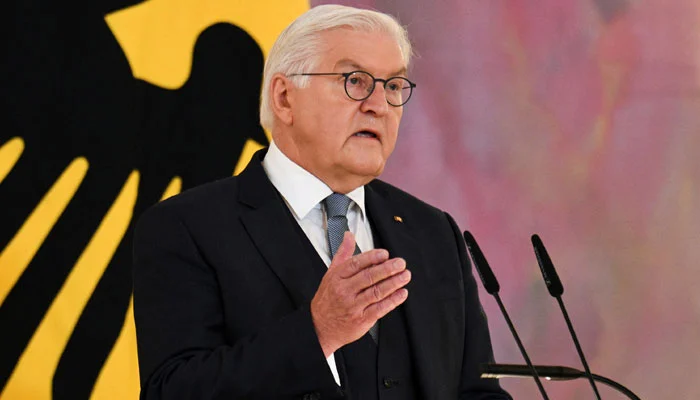German President Frank-Walter Steinmeier dissolved parliament on Friday and officially confirmed February 23 as the date for an early general election, following the collapse of Chancellor Olaf Scholz’s government last month.
Scholz’s coalition fell apart due to internal divisions over how to revive Europe’s largest economy, but the tragic car-ramming attack at a Christmas market in Magdeburg last week has reignited fierce debates over security and immigration in the country.
In his announcement, Steinmeier called for political stability and urged that the upcoming election campaign be conducted with “respect and decency.” The attack, which left five people dead and over 200 injured, involved 50-year-old Saudi doctor Taleb al-Abdulmohsen, who was arrested at the scene. Interior Minister Nancy Fraser has indicated that Abdulmohsen held “Islamophobic” views, but his exact motives remain unclear.
In the wake of the attack, Chancellor Scholz appealed to Germans to stand united, urging them to “link arms” and not let “hatred” dictate their society.
The conservative CDU/CSU, led by Friedrich Merz, currently leads the polls with around 32 percent, even before the Christmas market attack. The party has pledged a tougher stance on immigration and a shift rightward on both social and economic policies.
Trailing in second place with 19 percent is the far-right Alternative for Germany (AfD), which held a “memorial” rally in Magdeburg on Monday. At the rally, AfD leader Jan Wenzel Schmidt called for Germany to “close the borders,” saying the country could “no longer take in madmen from all over the world.”
Steinmeier also stressed the importance of a fair and transparent campaign, warning against the dangers of foreign influence, particularly on social media platforms like X (formerly Twitter), owned by billionaire Elon Musk. “Hatred, violence, denigration, and intimidation have no place in this election campaign,” he said. “All of this is poison for democracy.”
The Social Democrats (SPD), Scholz’s party, are trailing significantly in the polls, with just 15 percent support. The collapse of the coalition government came on November 6, when Scholz lost a confidence vote, setting the stage for the early election. He will remain as caretaker chancellor until a new government is formed, which may take several months after the election.
Steinmeier reminded political parties and voters of the significant challenges the next government will face, including economic instability, ongoing conflicts in the Middle East and Ukraine, as well as the contentious issues of immigration and climate change.
On security, both the CDU and SPD agree on continued support for Ukraine in its war with Russia and a commitment to spending at least 2 percent of GDP on defense. However, the CDU has been vague about what weapons it would send to Ukraine, while the SPD opposes providing long-range missiles, fearing that Germany and NATO might become direct participants in the war.
On the economy, both parties aim to revitalize Germany’s industrial sector and boost investment, with the SPD proposing a “Germany Fund” to mobilize an initial 100 billion euros. However, the CDU insists on maintaining the “debt brake,” Germany’s strict limit on new state borrowing.
The two parties also differ on climate policy. The SPD has committed to advancing renewable energy, e-mobility, and green hydrogen, while the CDU has pledged to reverse the planned phase-out of combustion engine vehicles and is exploring whether some of Germany’s closed nuclear power plants can be reopened.
As the country heads toward an early election, Steinmeier’s call for unity and respect underscores the stakes in what is shaping up to be a fiercely contested race.
AFP


